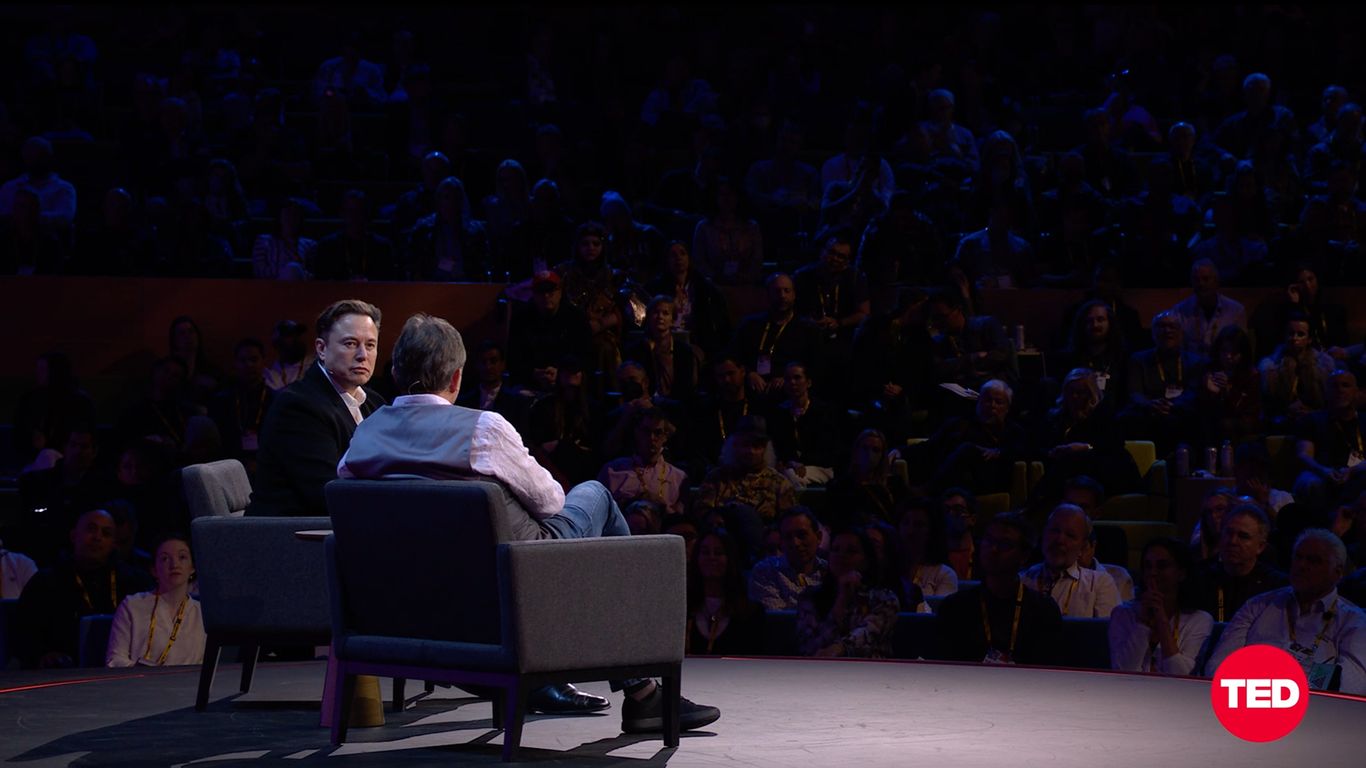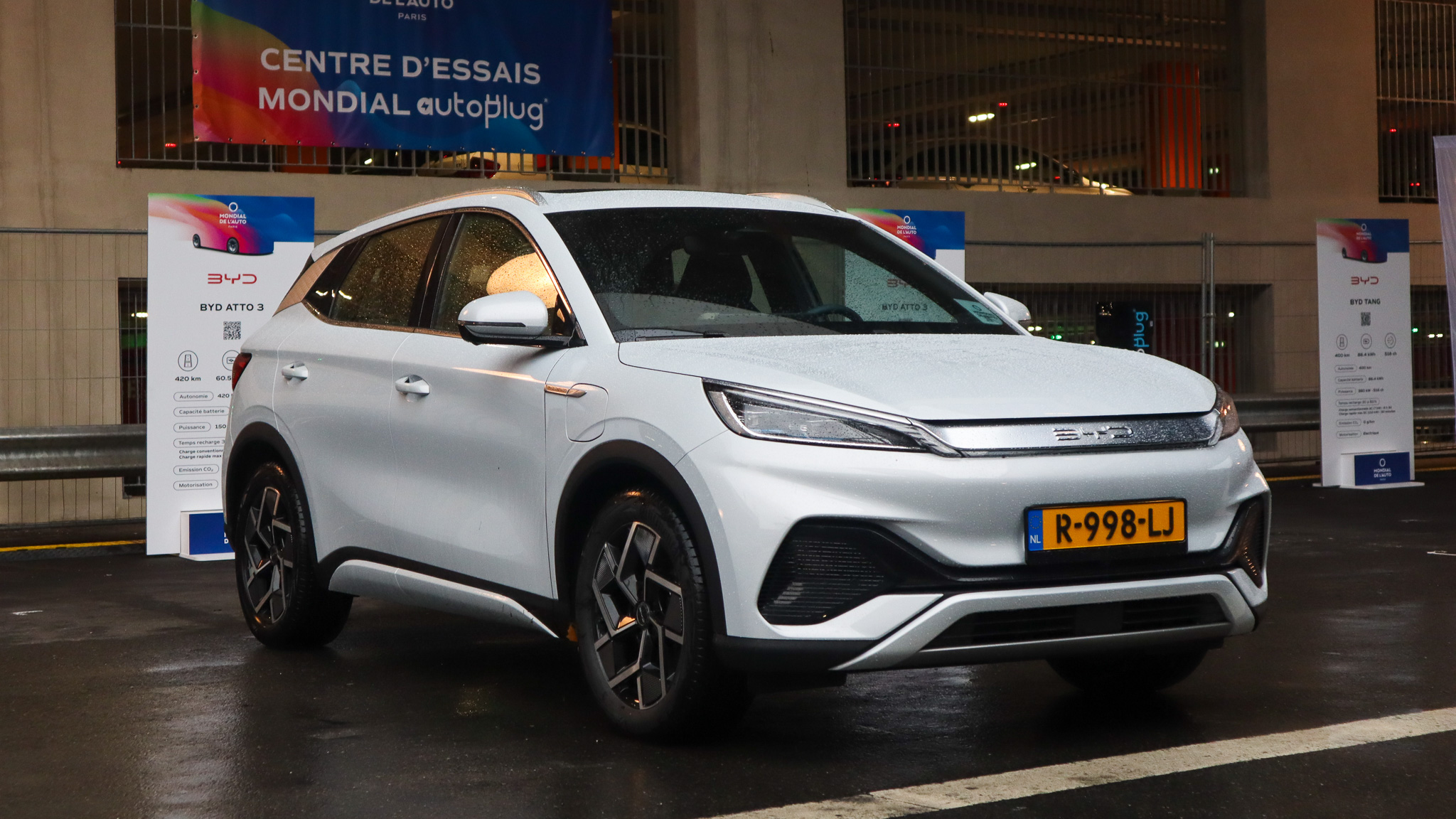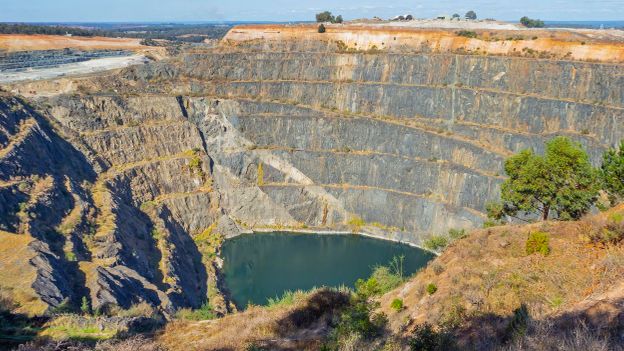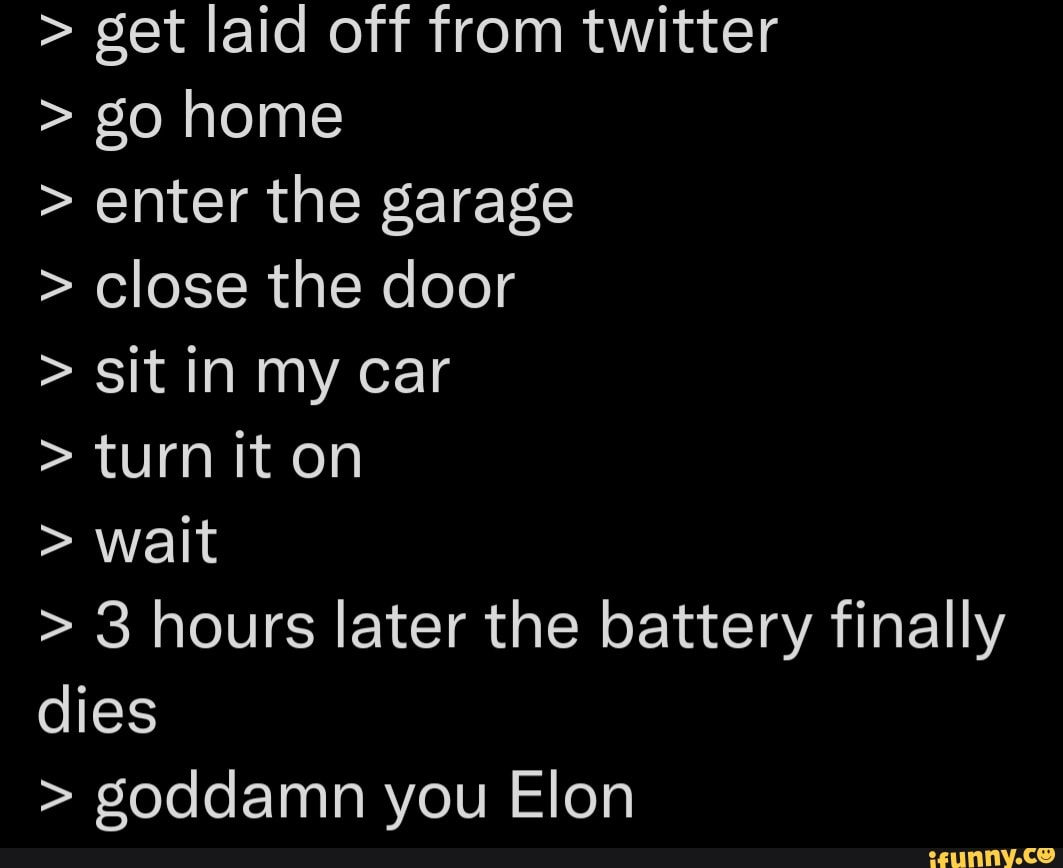He's an engineer on the spectrum....social graces not his forté
You are using an out of date browser. It may not display this or other websites correctly.
You should upgrade or use an alternative browser.
You should upgrade or use an alternative browser.
Any GTAM'ers own an electric vehicle?
- Thread starter PrivatePilot
- Start date
His education AFAIK is Physics and Economics, not Engineering. Sure Engineering uses physics but... In context, it is like a dude with a Biology undergrad and an Economics undergrad degree) appointing himself as Chief Physician of a hospital he owns. Sure he understands biology, and economics to run the business but he ain't no actual MD. But the term Engineer is also used much more loosely in the US...He's an engineer on the spectrum....social graces not his forté
As for being on the spectrum, possibly and/or he is just a narcissist/sociopath?
He titles himself

 www.axios.com
www.axios.com
andIn 2002, Musk founded SpaceX, an aerospace manufacturer and space transport services company, and is its CEO and chief engineer.
andElon Musk has no formal engineering degree, but he clearly is industrial engineer by profession. His approach to business and problem solving is typical industrial engineering approach. His actual degrees (BS in both economics and physics) have good overlap with undergraduate curriculum in IE
Elon Musk opens up on how Asperger's has impacted his life. Elon Musk opened up on Thursday about his experience growing up with Asperger's syndrome, or autism spectrum disorder.

Elon Musk opens up about growing up with Asperger's
There are relatively few known examples of successful entrepreneurs and business leaders with Asperger’s.
So it is like the old timey dark days back when Barber's called themselves Surgeons....
Chris-CJ
Well-known member
David Booth says that the perception of EVs being "green" vehicles is smoke and mirrors.
Here is an excerpt (based on numbers from the Volvo C40):
According to the Carbon Footprint Report for its fully-electric C40 Recharge, about 18 metric tonnes of CO2 are emitted in the production of the BEV’s hard parts. Everything from the melding of aluminum, steel, and plastic that makes up the C40’s chassis; to the electronics that power its hardware contribute to its footprint.
But that’s not all. Producing its lithium-ion battery creates another seven metric tonnes of carbon dioxide. Throw in another 1.4 tonnes produced by the actual manufacturing facility, and you have 26.4 metric tonnes of CO2 that would need sequestering (that’s roughly twice as much as required to manufacture an ICE-powered XC40, by the way).*
A little basic math reveals that, at an emission rate of 0.0000625 kilograms of CO2 per kilometre — that’s the ZEM’s rated two kilos every 32,000 klicks — Eindhoven’s car would have to travel about 422 million miles to sequester all of those 26.4 tonnes of CO2. And that’s if we assume that all the charging stations were powered by windmills; it’d be closer to 800 million miles if they were hooked up to the typical electricity grid.
Full article here:
Here is an excerpt (based on numbers from the Volvo C40):
According to the Carbon Footprint Report for its fully-electric C40 Recharge, about 18 metric tonnes of CO2 are emitted in the production of the BEV’s hard parts. Everything from the melding of aluminum, steel, and plastic that makes up the C40’s chassis; to the electronics that power its hardware contribute to its footprint.
But that’s not all. Producing its lithium-ion battery creates another seven metric tonnes of carbon dioxide. Throw in another 1.4 tonnes produced by the actual manufacturing facility, and you have 26.4 metric tonnes of CO2 that would need sequestering (that’s roughly twice as much as required to manufacture an ICE-powered XC40, by the way).*
A little basic math reveals that, at an emission rate of 0.0000625 kilograms of CO2 per kilometre — that’s the ZEM’s rated two kilos every 32,000 klicks — Eindhoven’s car would have to travel about 422 million miles to sequester all of those 26.4 tonnes of CO2. And that’s if we assume that all the charging stations were powered by windmills; it’d be closer to 800 million miles if they were hooked up to the typical electricity grid.
Full article here:
That is a pretty bleeping terrible article. As a first cut, for his math to work, ICE cars would require zero emissions to produce. 2 Kilos of C02 every 32,000 km also seems to be out in cookooland. Which editor let this drivel past? It is more in the ballpark of 150 to 200g/km. That is 4800 kg/32000 km, not 2. He is only off by a factor of at least 2400.David Booth says that the perception of EVs being "green" vehicles is smoke and mirrors.
Here is an excerpt (based on numbers from the Volvo C40):
According to the Carbon Footprint Report for its fully-electric C40 Recharge, about 18 metric tonnes of CO2 are emitted in the production of the BEV’s hard parts. Everything from the melding of aluminum, steel, and plastic that makes up the C40’s chassis; to the electronics that power its hardware contribute to its footprint.
But that’s not all. Producing its lithium-ion battery creates another seven metric tonnes of carbon dioxide. Throw in another 1.4 tonnes produced by the actual manufacturing facility, and you have 26.4 metric tonnes of CO2 that would need sequestering (that’s roughly twice as much as required to manufacture an ICE-powered XC40, by the way).*
A little basic math reveals that, at an emission rate of 0.0000625 kilograms of CO2 per kilometre — that’s the ZEM’s rated two kilos every 32,000 klicks — Eindhoven’s car would have to travel about 422 million miles to sequester all of those 26.4 tonnes of CO2. And that’s if we assume that all the charging stations were powered by windmills; it’d be closer to 800 million miles if they were hooked up to the typical electricity grid.
Full article here:
The petrol C40 would emit about 200g CO2 per km. On Ontario's grid, the electric one's CO2 emissions arising from driving it are a rounding error (calcs earlier in this thread). If we accept the entire 26.4 t to manufacture (sounds high, but let's suppose) using the electric one saves 1 t CO2 per 5000 km. Break-even at 130,000 km. This assumes the petrol one took nothing to produce. If the EV part of it accounts for half (sounds high) then it would be at 65,000 km. (A more realistic number that I've heard elsewhere is about half that. Their estimates are high on both total to build the car and on the portion allocated to the EV part of it.) No question there "is" a break-even and it's dependent on how low-emission your local grid is...and ours is pretty good.
David Booth is a known EV hater. Second-guess anything he says about them. He's not always wrong, but he is way out to lunch here.
The best way to cut emissions is to not use a F350 duallie to drive one person to work and back because once every 3 years they want to tow a utility trailer across town.
"But the EV won't tow my enormous house trailer across the country" well maybe we shouldn't be doing that so much. (Less of a problem than it's made out to be. Not many people actually do that.)
David Booth is a known EV hater. Second-guess anything he says about them. He's not always wrong, but he is way out to lunch here.
The best way to cut emissions is to not use a F350 duallie to drive one person to work and back because once every 3 years they want to tow a utility trailer across town.
"But the EV won't tow my enormous house trailer across the country" well maybe we shouldn't be doing that so much. (Less of a problem than it's made out to be. Not many people actually do that.)
Information on lifetime CO2 emissions for various powertrain technologies, broken down into that arising from manufacturing and from use, are readily available and that's where my statement that Volvo's numbers are high and Booth's calcs are outright wrong come from.
That article is a load of tripe worded in such a fashion so that people who don’t get beyond the first few paragraphs will be quick to cite it in any anti-EV discussion.
But if you actually bother to read to the bottom?
*Author’s note: The statement above should not in any way be misconstrued as claiming that, over time, an EV is not cleaner and greener than an ICE. Since the C40 Recharge emits no carbon while driving, it will eventually ‘catch up’ to the fossil-fueled XC40, and beyond a certain point produce less CO2 overall.
Exactly how long that takes depends on how clean the electricity is that you’re using to recharge the C40’s batteries. If it’s greener-than-thou wind power, then by 49,000 kilometres, the electrified C40 will be producing less lifetime CO2 emissions.
The fact that even in his mea culpa (at the end of his article, that most people won’t read) he takes another dig at the green movement tells you all you need to know about the authors intent.
Anyhow, given as basically all of our electricity here in Ontario is equivalent to solar so far as carbon emissions, the 49,000km number applies.
So my Volt has been “winning” on pollution output for 140,000km now, and counting. My wife’s Volt, about 60,000km (and counting) now. My sons Volt? Almost 200,000km and counting.
So just in our driveway alone there’s OVER 400,000km of “cleaner driving” vs a gas powered vehicle.
What a **** article. Driving should be ashamed of themselves even publishing this.
But if you actually bother to read to the bottom?
*Author’s note: The statement above should not in any way be misconstrued as claiming that, over time, an EV is not cleaner and greener than an ICE. Since the C40 Recharge emits no carbon while driving, it will eventually ‘catch up’ to the fossil-fueled XC40, and beyond a certain point produce less CO2 overall.
Exactly how long that takes depends on how clean the electricity is that you’re using to recharge the C40’s batteries. If it’s greener-than-thou wind power, then by 49,000 kilometres, the electrified C40 will be producing less lifetime CO2 emissions.
The fact that even in his mea culpa (at the end of his article, that most people won’t read) he takes another dig at the green movement tells you all you need to know about the authors intent.
Anyhow, given as basically all of our electricity here in Ontario is equivalent to solar so far as carbon emissions, the 49,000km number applies.
So my Volt has been “winning” on pollution output for 140,000km now, and counting. My wife’s Volt, about 60,000km (and counting) now. My sons Volt? Almost 200,000km and counting.
So just in our driveway alone there’s OVER 400,000km of “cleaner driving” vs a gas powered vehicle.
What a **** article. Driving should be ashamed of themselves even publishing this.
Article above......- consider the source 
meanwhile

 jalopnik.com
jalopnik.com
and no there is no shortage of lithium ....the only question is if the relatively mineral can be mined fast enough.

 www.bbc.com
www.bbc.com
meanwhile

Driving The BYD Atto 3 Proves Chinese Cars Are A Major Threat To The Automotive Establishment - Jalopnik
The stereotype of Chinese cars being poorly styled, terribly made shitboxes was definitely based in reality at one point, but how many of y’all have actually had firsthand experience with modern Chinese vehicles? I found myself at the 2022 Paris Auto Show with the chance to get some real-world...
and no there is no shortage of lithium ....the only question is if the relatively mineral can be mined fast enough.

How Australia became the world's greatest lithium supplier
As demand soars for EVs and clean energy storage, Australia is rising to meet much of the world's demand for lithium. How can we source this lithium sustainably?
Last edited:
Mad Mike
Well-known member
29kwh/100 for 70000km would be $2800 in electricity at the .14/kwh I pay.Over 7000km I have averaged 29kwh/100km, it was at 28kw/h for the longest time but is creeping up with the cooler weather. For example this morning drive was just over 100km of back roads and it showed 33kwh/100km. Other then preconditioning it on the charger I don't really do anything to get the best efficiency. It is the extended range.
My Chev Cruze uses 6.6l/100km. At an average of 1.50/l for the last 3 years. About $4600 in gasoline.
A 2019 model 3 tesla with 70 000km sells for $50k, about 25k less than its original OTD price. A 2019 Cruze sells for $20k, $ 5k less than OTD original price.
I'd have to drive the Cruze about 1millon km before the Tesla TCO became more economical.
If people actually cared enough to look at the numbers and make a decision based on that it would be way easier.29kwh/100 for 70000km would be $2800 in electricity at the .14/kwh I pay.
My Chev Cruze uses 6.6l/100km. At an average of 1.50/l for the last 3 years. About $4600 in gasoline.
A 2019 model 3 tesla with 70 000km sells for $50k, about 25k less than its original OTD price. A 2019 Cruze sells for $20k, $ 5k less than OTD original price.
I'd have to drive the Cruze about 1millon km before the Tesla TCO became more economical.
But a Tesla is much more sexy than your Cruze, or my Volt. So Tesla buyers will just praise the EV benefits.
No one needs a 100k EV to save gas money. But they can justify it to others in a myriad of ways. Which is fine.
But buying a 100k EV to save money on gas…I just shake my head and keep walking.
Want a Tesla? No problem. But don’t lie to me you bought it to save money.
IIRC black Camaro has a lightning. Correct comparison would be f150 not Cruze. That would change the math substantially.29kwh/100 for 70000km would be $2800 in electricity at the .14/kwh I pay.
My Chev Cruze uses 6.6l/100km. At an average of 1.50/l for the last 3 years. About $4600 in gasoline.
A 2019 model 3 tesla with 70 000km sells for $50k, about 25k less than its original OTD price. A 2019 Cruze sells for $20k, $ 5k less than OTD original price.
I'd have to drive the Cruze about 1millon km before the Tesla TCO became more economical.
Mad Mike
Well-known member
Yup. Or that your Tesla is cheaper than my cruze over time....
Want a Tesla? No problem. But don’t lie to me you bought it to save money.
Way back I'd have been enamored with a Tesla, these days I think with my wallet a little more, let's me enjoy stuff I really like.
I also do work I love instead of the tougher jobs I once needed to cover bigger bills. I see value in owning 10 less suits, and traveling 100 less days a year.
Just came back from a conference and realized how much I don’t miss the travel at all.Yup. Or that your Tesla is cheaper than my cruze over time.
Way back I'd have been enamored with a Tesla, these days I think with my wallet a little more, let's me enjoy stuff I really like.
I also do work I love instead of the tougher jobs I once needed to cover bigger bills. I see value in owning 10 less suits, and traveling 100 less days a year.
12hrs at the airport stuck in the WestJet fiasco didn’t help….
Mike, would you only charge an electric vehicle at on-peak rates?29kwh/100 for 70000km would be $2800 in electricity at the .14/kwh I pay.
My Chev Cruze uses 6.6l/100km. At an average of 1.50/l for the last 3 years. About $4600 in gasoline.
A 2019 model 3 tesla with 70 000km sells for $50k, about 25k less than its original OTD price. A 2019 Cruze sells for $20k, $ 5k less than OTD original price.
I'd have to drive the Cruze about 1millon km before the Tesla TCO became more economical.
I charge mine at off-peak rates of 7.4c/kwh and in 4.5 years have charged my car at mid-peak or on-peak rates less than 10 times.
For a more fair comparison, compare the Cruze to the Volt, but also include the cost of the charger and install - I paid around $2k for mine.
In the days of the gov rebates, I picked up my brand new Volt for $33k all in, while a similarly equipped Cruze would have been around $23k all in.
Lastly, I'm not sure how many people actually buy an electric car just for the cost savings. Being able to use the HOV lanes, reduce time spent at gas stations and doing service maintenance/repairs are also big draws. The low centre of gravity also makes it more fun to drive and better in the winter too.
Mad Mike
Well-known member
Yes, I'd use off peak rates (Markham that's a little over 11cents/kwh. (7.4c is our energy charge- but to compare apples to apples you have to include the variable charges too - delivery 1.33c, transmission .1c , line loss adjustment .325c, , debt retirement .7c and HST 1.28c bring my off peak to 11.2c/kwh.)Mike, would you only charge an electric vehicle at on-peak rates?
I charge mine at off-peak rates of 7.4c/kwh and in 4.5 years have charged my car at mid-peak or on-peak rates less than 10 times.
For a more fair comparison, compare the Cruze to the Volt, but also include the cost of the charger and install - I paid around $2k for mine.
In the days of the gov rebates, I picked up my brand new Volt for $33k all in, while a similarly equipped Cruze would have been around $23k all in.
Lastly, I'm not sure how many people actually buy an electric car just for the cost savings. Being able to use the HOV lanes, reduce time spent at gas stations and doing service maintenance/repairs are also big draws. The low centre of gravity also makes it more fun to drive and better in the winter too.
Comparing Volt to a Cruze is what I did to when I bought my first Cruze in 2015. At that time, comparably equipped cars were OTD 40k (with rebate) for Volt, 21k for Cruze. Gas was 1.10/l.
I wanted the Volt, wife was skeptical. She agreed to go forward if I could show her how a Volt would save us money. I couldn't make it even close.
I still wanted to try electric, tried again in '19, Cruze vs Bolt, Iconic, and Leaf. TCO closer, but still a huge premium to drive an EV.
Its gonna be different on my next truck. 16l/100 vs 40kwh/100km will make a truck much easier to justify.
28 kwh/100 according to blackcamaros real world experience. Huge cost saving if you can get one and you truck needs can be satisfied with the lightning.Its gonna be different on my next truck. 16l/100 vs 40kwh/100km will make a truck much easier to justify.






















